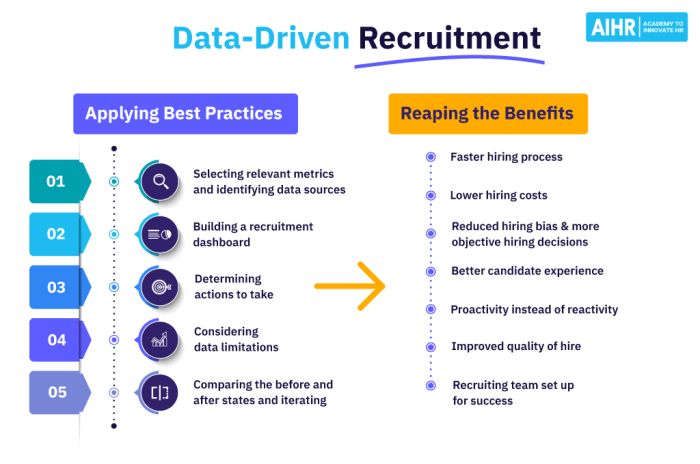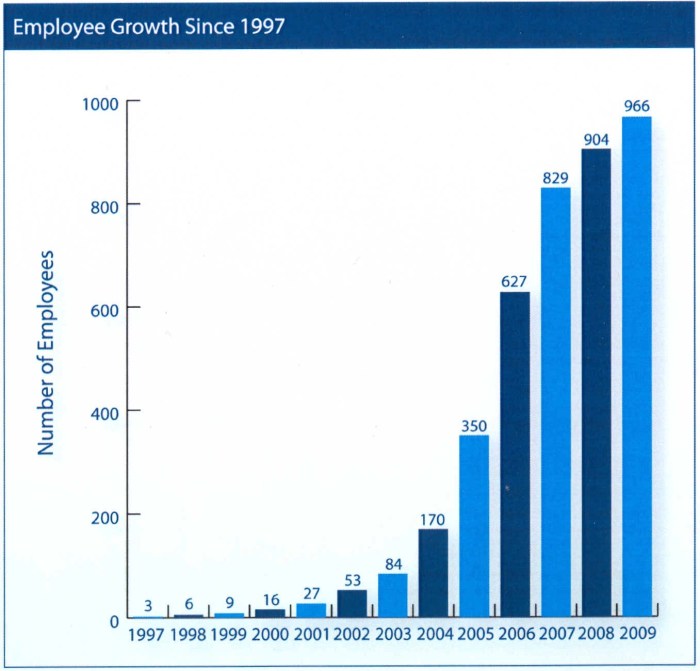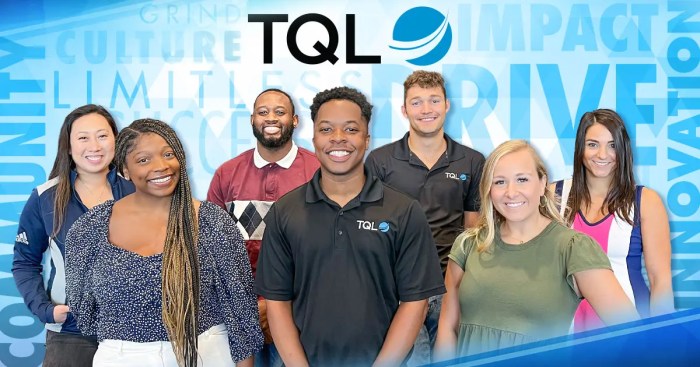Tql employee driven community service program – The TQL Employee-Driven Community Service Program stands as a beacon of corporate social responsibility, embodying the transformative power of employee engagement in community upliftment. This comprehensive program empowers TQL employees to make a tangible difference in the lives of others, fostering a culture of compassion and service that extends beyond the workplace.
Through a structured and collaborative approach, TQL employees actively identify and address community needs, implementing innovative projects and initiatives that address pressing social issues. Their dedication has resulted in a wide range of impactful initiatives, ranging from educational support to environmental conservation, leaving a lasting legacy in the communities they serve.
Overview of TQL Employee-Driven Community Service Program: Tql Employee Driven Community Service Program

The TQL Employee-Driven Community Service Program empowers employees to actively engage in their communities and make a meaningful impact. Its mission is to foster a culture of giving back, strengthen community ties, and provide employees with opportunities for personal growth and fulfillment.
The program targets a wide range of communities, including those facing social, economic, or environmental challenges. It aims to address critical needs such as poverty, hunger, homelessness, and environmental degradation.
Since its inception, the program has evolved significantly, expanding its reach and impact through innovative initiatives and partnerships with local organizations.
Program Structure and Implementation
The program is structured around a decentralized model, with employee-led committees at each TQL location. These committees identify community needs, plan activities, and engage with local partners.
Employees are encouraged to participate in a variety of ways, including volunteering their time, donating funds, and organizing fundraising events. The program provides a platform for employees to share their skills, passions, and commitment to their communities.
To ensure successful implementation, the program has established clear guidelines and support systems. It provides training and resources to employee committees, fosters collaboration between locations, and tracks progress through regular reporting and evaluation.
Types of Community Service Activities
| Activity Type | Description | Examples |
|---|---|---|
| Volunteerism | Employees donate their time and skills to support local organizations | Tutoring students, serving meals at soup kitchens, cleaning up parks |
| Fundraising | Employees organize events or solicit donations to raise funds for community initiatives | 5K races, charity auctions, online crowdfunding |
| Advocacy | Employees engage in advocacy efforts to raise awareness and support for important causes | Lobbying for policy changes, writing letters to elected officials |
| Community Partnerships | Employees collaborate with local organizations to develop and implement joint projects | Mentoring programs, community gardens, after-school programs |
Benefits and Impact of the Program, Tql employee driven community service program
The TQL Employee-Driven Community Service Program has a profound impact on both the community and TQL employees.
Community Impact
- Provides critical support to community organizations
- Addresses pressing social, economic, and environmental issues
- Fosters a sense of community and belonging
Employee Benefits
- Enhances employee morale and job satisfaction
- Provides opportunities for personal growth and development
- Builds a strong employer brand and attracts socially conscious candidates
Data from employee surveys and community feedback consistently demonstrates the positive impact of the program.
Best Practices and Lessons Learned
Over the years, the TQL Employee-Driven Community Service Program has identified several best practices that contribute to its success:
- Empowering employees to take ownership of the program
- Providing clear guidelines and support systems
- Fostering collaboration and knowledge sharing
- Measuring and evaluating impact
The program has also encountered challenges, such as managing volunteer schedules and ensuring consistent participation. Through lessons learned, the program has developed strategies to overcome these obstacles.
Recognition and Awards
- Corporate Responsibility Award from the Council of Supply Chain Management Professionals (CSCMP)
- Philanthropy Award from the Association for Corporate Citizenship
- Recognized as one of the “100 Best Corporate Citizens” by Corporate Responsibility Magazine
These accolades demonstrate the program’s commitment to excellence and its impact on the community.
Future Plans and Sustainability
The TQL Employee-Driven Community Service Program is committed to continuous improvement and expansion.
- Expanding the program to new locations and communities
- Developing innovative initiatives to address emerging needs
- Strengthening partnerships with local organizations
The program recognizes the importance of sustainability and seeks to ensure its long-term viability through ongoing engagement with employees, community partners, and stakeholders.
Answers to Common Questions
What is the primary goal of the TQL Employee-Driven Community Service Program?
The program aims to empower TQL employees to actively engage in community service, fostering a culture of compassion and service that extends beyond the workplace.
How are community service activities identified and selected?
TQL employees actively identify and assess community needs, working closely with local organizations and community leaders to determine the most pressing issues and develop impactful projects.
What types of community service activities are typically organized by TQL employees?
TQL employees engage in a diverse range of community service activities, including educational support, environmental conservation, disaster relief, and social welfare initiatives.


